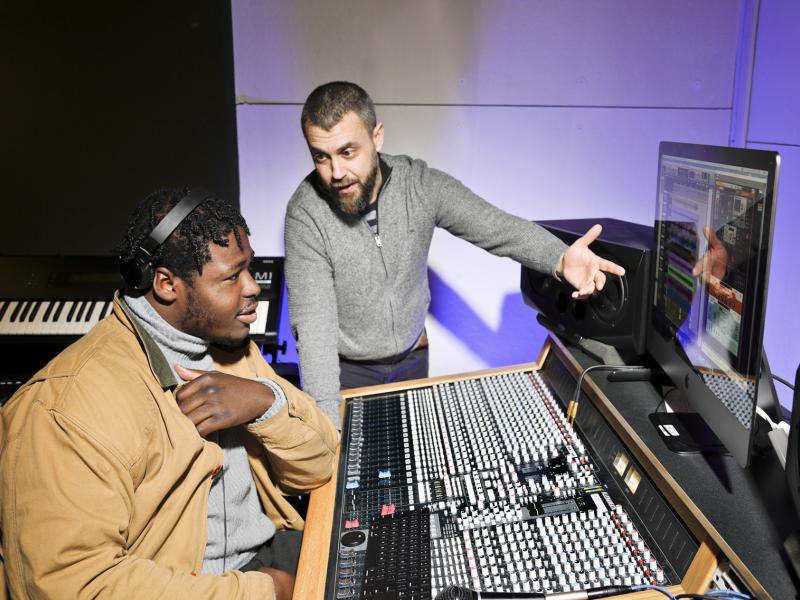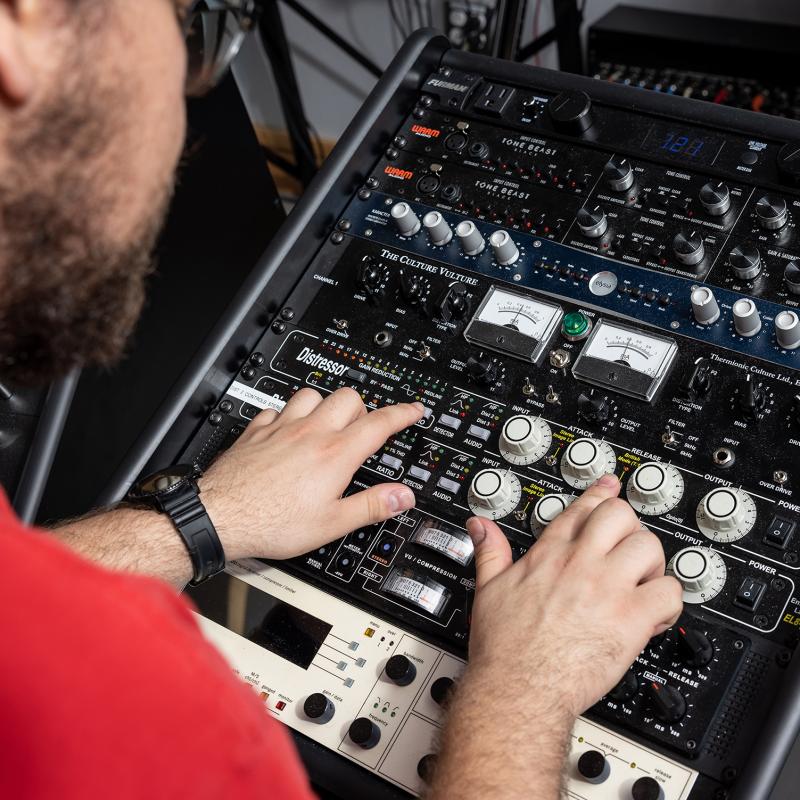-
Program Duration: 2 Year Program
-
Degree Type: Associate in Applied Science (A.A.S.)
-
Total Credit Hours: 60

About This Program
Use the latest technology in creating and recording music. You will learn to use sophisticated equipment, work with professional software, create music for multimedia and film, use a mixing board and learn various microphone techniques, run and record live sessions, and print your own music for publication. The College’s program also offers you internship opportunities at local recording studios, individual computer stations with extensive technology for recording and composing, an introduction to the music industry as a business, and training on the same equipment that music industry professionals use. This program is ideal for anyone who wants to pursue a career in music production and studio recording, musicians who want to be able to record and publish their own music, and music teachers.

Launch Your Career as a Sound Engineering Technician
- Sound Engineering Technician – est. salary $86,124
- Median Salary of Music Directors and Composers– est. salary $68,596
Sound Engineering Technician
Operate machines and equipment to record, synchronize, mix, or reproduce music, voices, or sound effects in sporting arenas, theater productions, recording studios, or movie and video productions.
Starting Pay: $35,919

Typical Tasks
- Confer with producers, performers, and others to determine and achieve the desired sound for a production, such as a musical recording or a film.
- Prepare for recording sessions by performing activities such as selecting and setting up microphones.
- Regulate volume level and sound quality during recording sessions, using control consoles.
- Record speech, music, and other sounds on recording media, using recording equipment.
- Separate instruments, vocals, and other sounds, and combine sounds later during the mixing or postproduction stage.
Related Programs
Let's Get Started



